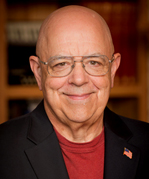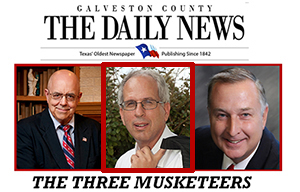February 1, 2016
During the process of writing the Constitution, the framers specifically molded the executive office with George Washington’s example in mind. They granted very specific powers to the executive office, which included an almost absolute responsibility to recognize countries, negotiate treaties, ensure the safety of American citizens at home and abroad, represent the nation, and command the military. This role was heavily weighted toward foreign relations.
Washington left some good advice. “Observe good faith and justice towards all Nations; cultivate peace and harmony with all.” “It is our true policy to steer clear of permanent alliances with any portion of the foreign world…”
A few years later, President James Monroe added, “The occasion has been judged proper for asserting… that the American continents, by the free and independent condition… are henceforth not to be considered as subjects for future colonization by any European powers.” Continuing he said “We should consider any attempt on their part to extend [foreign governments] system to any portion of this hemisphere as dangerous to our peace and safety.”
With only minor deviations, both Washington’s advice and the “Monroe Doctrine” have been the foundations of American foreign policy. The practical use has been to seek peace first, and when war was needed, remove tyranny, while restoring within reason their former freedoms.
We have not sought conquest for power, to defend yes, but not to abuse the natural rights of men. Particular attention to foreign intervention in the Americas has been of prime interest. Several Presidents including Kennedy and Reagan particularly followed Monroe’s precedence; Kennedy with respect to Cuba and Reagan with respect to Nicaragua and Grenada.
Almost without exception the Americas have embraced this doctrine when used with honest intent. Even today in Grenada, almost thirty years after Reagan organized and sent troops to remove a tyrannical government, the vast majority speak about Reagan with respect, gratitude, and thankfulness. When he visited, signs read, "Granada Welcomes President Reagan", and "Thank God for U.S. and Caribbean Heroes of Freedom."
Foreign relations may be the single most important role of the Presidency. John Kerry, representing the President, stated in 2013 that the "era of the Monroe Doctrine is over.” What he meant remains unclear. What we know, is that world chaos has dramatically increased since 2009. We wonder whether the abandonment of a sound foreign policy or development of a newer policy has been the cause.
Around the world our allies have been saddened and our enemies encouraged by our lack of a sound foreign policy. Redlines were drawn and when push came to shove they meant absolutely nothing. Our strongest and most reliable ally in the Middle East (Israel) has been snubbed and undercut at what seems like every turn. We cannot allow this to continue. Keeping on the current course guarantees more tyranny and a shipwreck. We cannot over emphasize the need to elect leaders who understand and embrace the most important roles of their office and act accordingly. And we, as Americans, also need to understand these most important roles.
Mark, Bill and John |



 Your Are Here: Home > Weekly News Columns > Foreign Policy Now and Then
Your Are Here: Home > Weekly News Columns > Foreign Policy Now and Then
